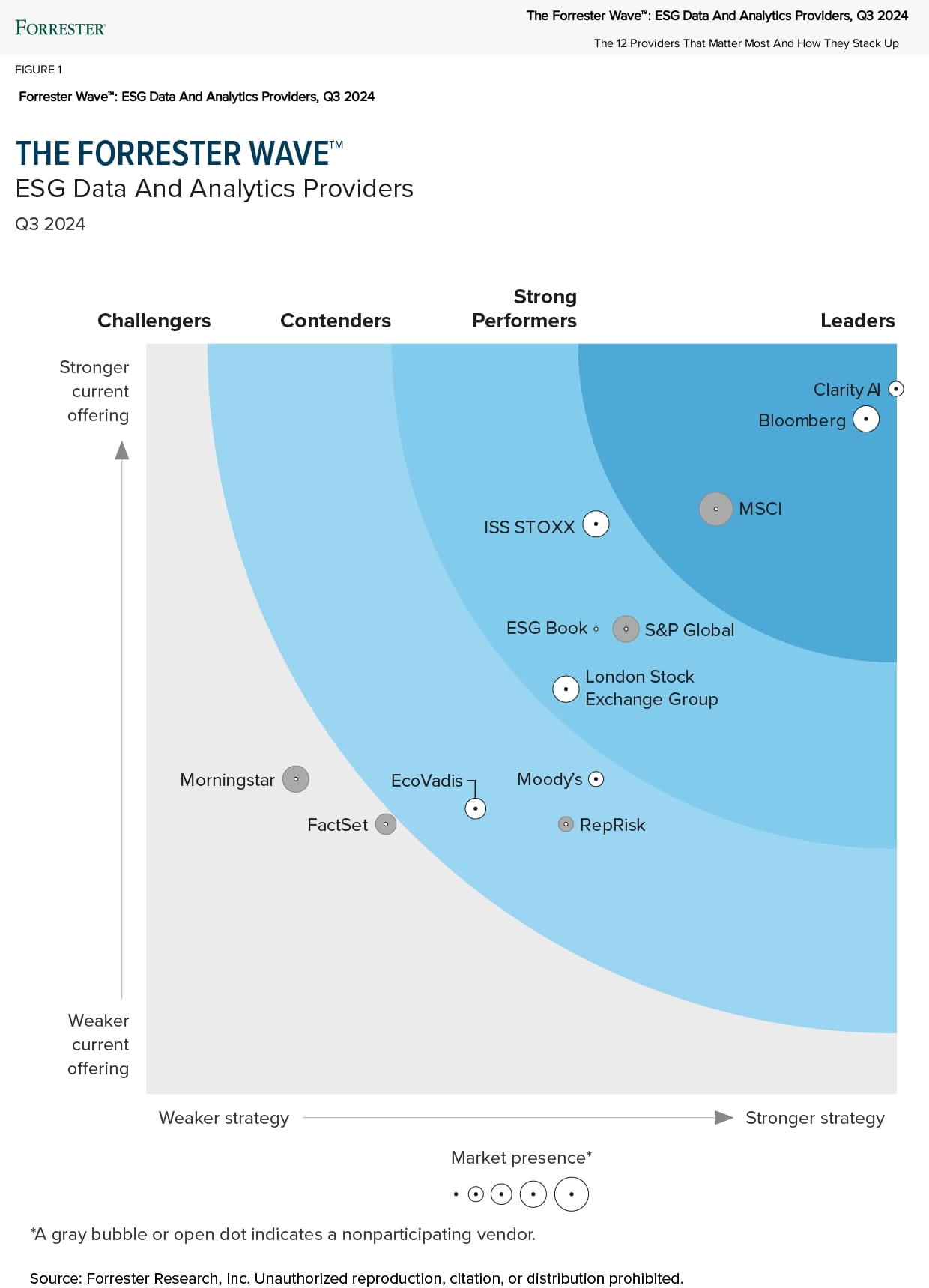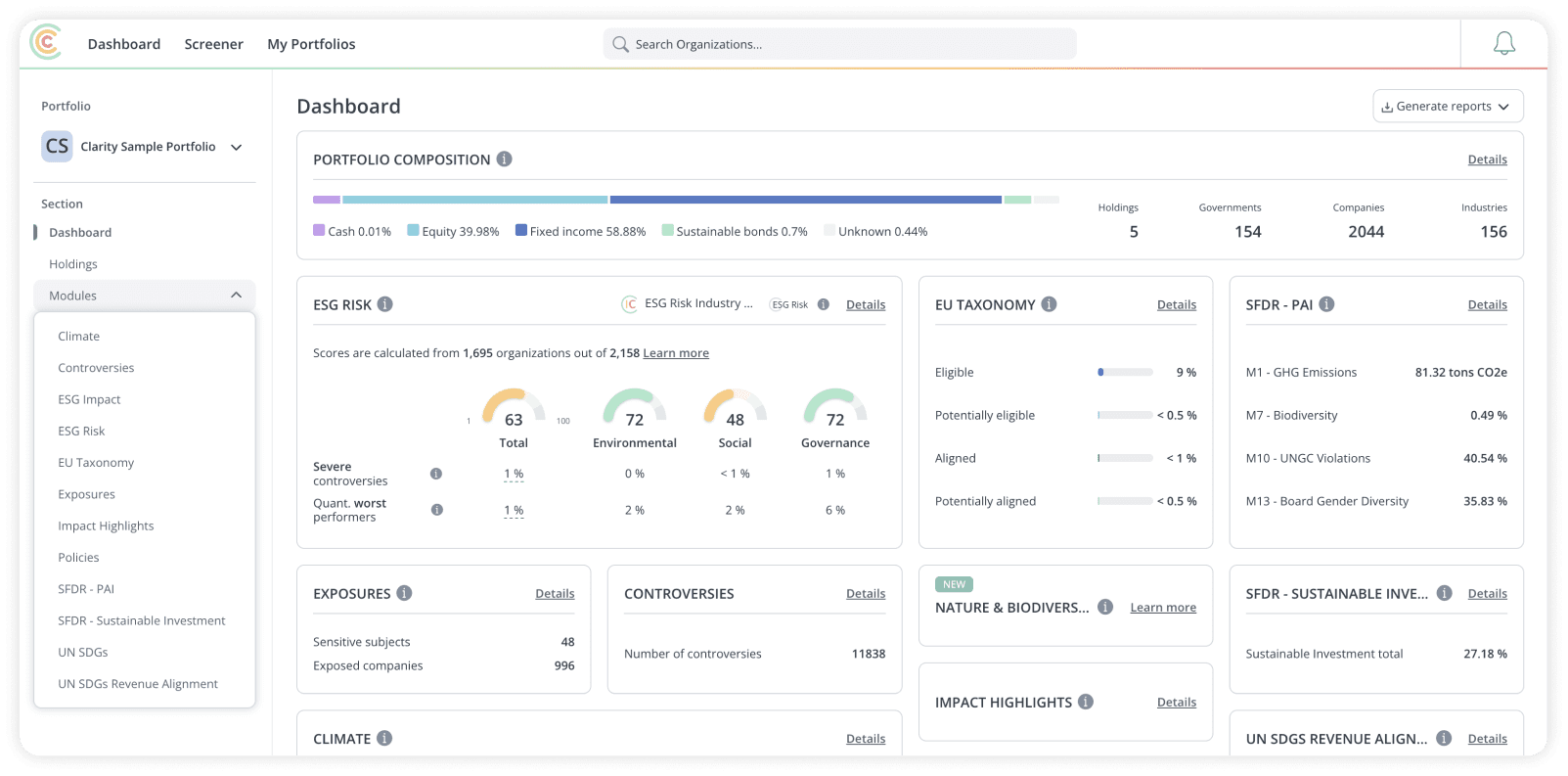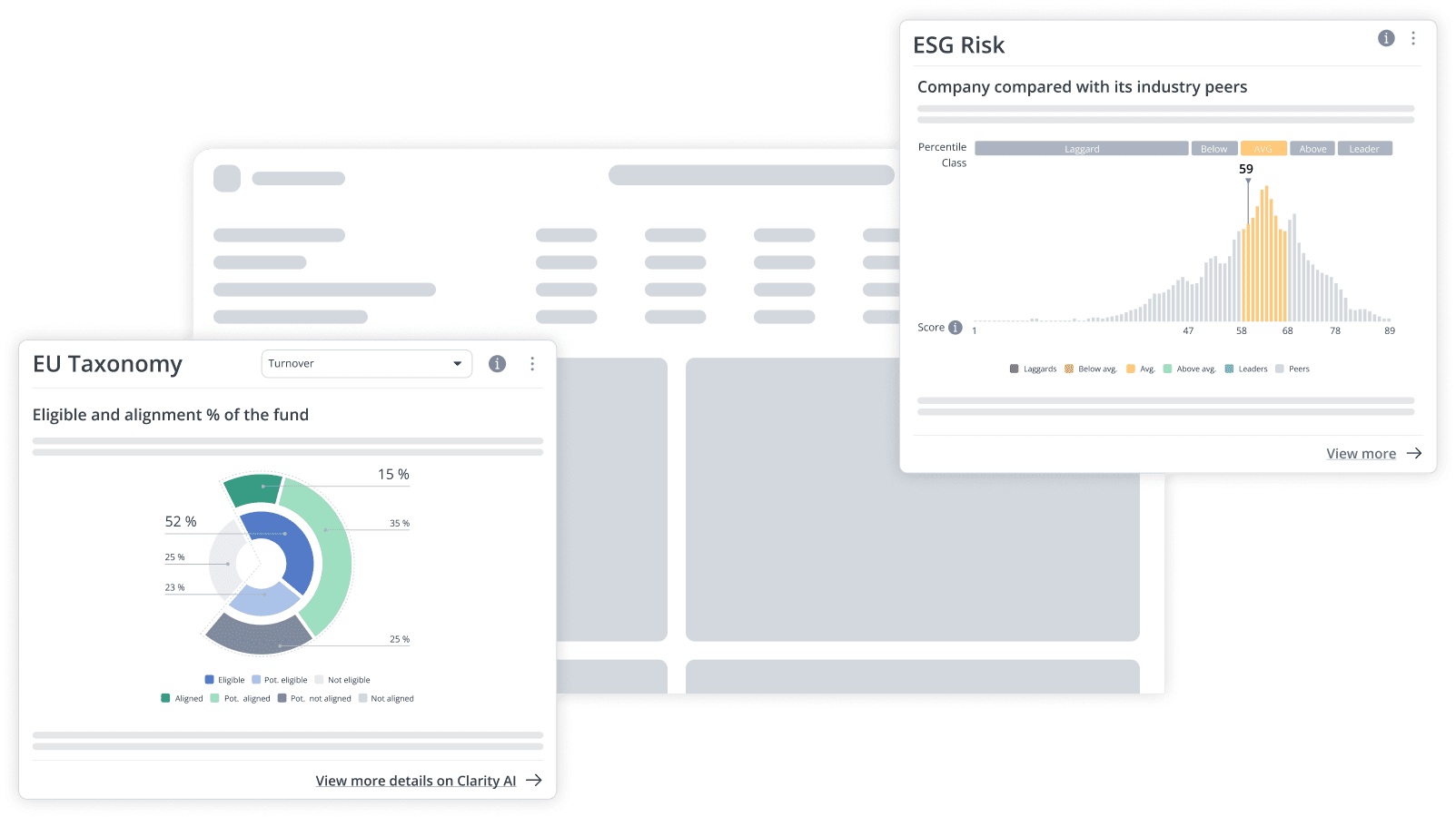Environmental impact analysis: Identifying sectors causing most harm to our oceans
The month of June contains World Ocean Day, and in recognition of that, Clarity AI analyzed the impact on our oceans that different sectors have, using a key metric around ocean acidification that feeds into the UN Sustainable Development Goals (SDGs) framework, specifically on Goal 14 – Life Below Water.
Our analysis showed that to be above the 75th percentile within a sector, a company would have to achieve a relatively high score, except for companies within the energy, materials, and utilities sectors. The companies within those sectors have a substantial amount of work to do to contribute to moving towards a more sustainable world in reference to ocean acidification, and any owner of a portfolio which includes companies within those sectors should examine plans and policies companies have in place to address this kind of impact.

As a reminder, UN SDGs measure the impact (value to society that a company creates or destroys) of a company’s operations, products, and services through the model of the UN Sustainable Development Goals.
Clarity AI has analyzed each of the 169 targets that form the 17 SDGs and filtered down the list of targets to those relevant for organizations and investors. The final 52 included are actionable, measurable and have a realistic timeline that can be reached by organization.
And in the words of the UN, “The ocean drives global systems that make the Earth habitable for humankind. Our rainwater, drinking water, weather, climate, coastlines, much of our food, and even the oxygen in the air we breathe, are all ultimately provided and regulated by the sea.
Careful management of this essential global resource is a key feature of a sustainable future. However, at the current time, there is a continuous deterioration of coastal waters owing to pollution, and ocean acidification is having an adversarial effect on the functioning of ecosystems and biodiversity. This is also negatively impacting small scale fisheries.
Saving our oceans must remain a priority. Marine biodiversity is critical to the health of people and our planet. Marine protected areas need to be effectively managed and well-resourced and regulations need to be put in place to reduce overfishing, marine pollution and ocean acidification.” (Source: UN.org)






